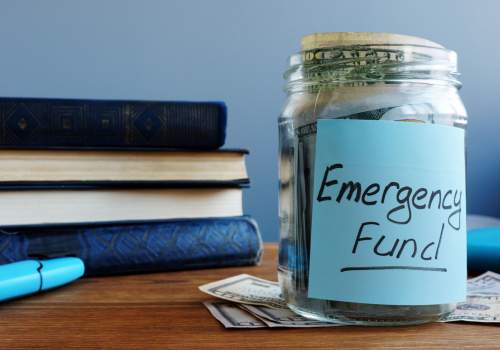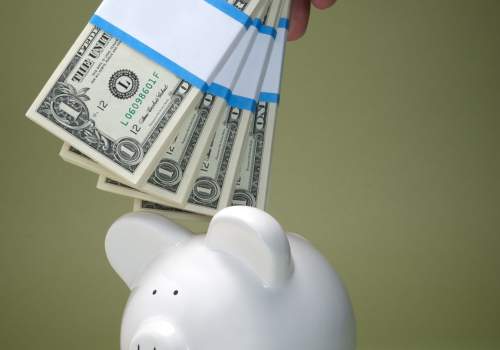16 Battle-Tested Strategies to Never Pay a Rental Late Fee Again
While rental late fees might seem like a minor inconvenience, they can quietly drain thousands from your bank account over the years.
You’re probably familiar with the basics of paying rent on time, but there’s a significant difference between knowing what to do and implementing a foolproof system that prevents costly mistakes.
As a tenant who’s managed properties and worked with hundreds of renters, I’ve discovered that avoiding late fees isn’t just about remembering due dates—it’s about creating a thorough strategy that works even when life throws unexpected challenges your way.
Let me share the battle-tested methods that’ll keep your rental payments pristine.

Set Up Automatic Rent Payments
Setting up automatic rent payments through your bank or property management portal stands out as the most reliable method to prevent late fees.
You’ll eliminate the risk of forgetting due dates or misplacing payment information by scheduling recurring transfers that align with your lease agreement.
Contact your bank to establish an automatic payment schedule that initiates transfers 2-3 days before your rent’s due date.
This buffer guarantees funds clear on time, even during holidays or system delays.
If your landlord offers an online portal, link your checking account directly and enable autopay features.
Always maintain sufficient funds to cover the scheduled payment amount plus a safety cushion.
Review your automatic payment settings quarterly to verify they match any rent adjustments or lease modifications.
Keep confirmation numbers and screenshots as proof of your scheduled payments.
Create Payment Calendar Reminders

In addition to automatic payments, strategically placed calendar reminders serve as a crucial backup system for staying on top of your rental obligations.
Set multiple alerts starting five days before your rent is due, with follow-up reminders at three days and one day before the deadline.
Take advantage of your smartphone’s calendar app by creating recurring monthly notifications that won’t get lost like paper reminders.
Include important details in each reminder: the exact payment amount, your landlord’s preferred payment method, and any processing time requirements.
If you’re using an online portal, add the website link directly to the calendar entry.
Don’t rely on a single reminder – create redundant alerts across different platforms, such as your email calendar and phone notifications, to guarantee you’ll catch at least one of them.
Pay Rent Before Other Bills
While calendar reminders help you stay organized, proper bill payment prioritization remains key to avoiding late rental fees. Always pay your rent first, before handling any other monthly expenses.
Housing costs should take precedence since late rental fees are typically higher than other bill penalties, and payment delays can damage your rental history.
Set aside your rent money as soon as you receive income, treating it as untouchable funds.
Don’t let discretionary expenses or lower-priority bills tempt you into using your rent allocation.
If you’re facing a tight month, contact utility companies, credit card issuers, or other creditors to arrange payment plans – they’re often more flexible than landlords.
Remember, maintaining a stable living situation trumps other financial obligations, as eviction proceedings can have long-lasting consequences on your ability to secure future housing.
Build An Emergency Fund

Regularly maintaining an emergency fund serves as an essential buffer against rental payment difficulties.
You’ll want to set aside at least three months’ worth of rent payments to protect yourself from unexpected financial setbacks.
Start by automatically transferring 10% of each paycheck into a dedicated savings account that you won’t touch except for true emergencies.
Track your emergency fund’s growth using a spreadsheet or banking app, and resist the temptation to dip into it for non-essential expenses.
When calculating your target emergency fund amount, include not just rent but also utilities and basic living expenses.
If you’ve had to use your emergency fund, make replenishing it your top financial priority.
This disciplined approach guarantees you’ll always have a financial safety net to prevent costly late fees.
Split Rent Into Smaller Payments
Splitting your monthly rent payment into smaller, more manageable chunks can help you stay on track with your rental obligations.
Instead of making one large payment, you can break it down into bi-weekly or weekly installments that align with your paycheck schedule.
First, confirm with your landlord or property manager that they’ll accept split payments.
Many modern rental payment platforms already offer this feature.
Set up automatic transfers from your bank account on specific dates, ensuring each portion of rent gets paid on time.
If you’re paid weekly, consider allocating 25% of your rent from each paycheck.
Remember to factor in any processing fees for multiple payments, and keep detailed records of each transaction.
This approach gives you more flexibility with your cash flow and reduces the stress of coming up with a large lump sum each month.
Negotiate Different Payment Due Dates

Tenants facing payment challenges can often work with their landlords to adjust rent due dates that better match their income schedule.
Most landlords would rather have reliable payments on a different date than late payments on the first of the month.
If you get paid on the 15th, request to shift your due date to align with your paycheck.
To negotiate a date change, approach your landlord with proof of your income schedule and a solid payment history.
Draft a formal written request explaining how the adjustment will guarantee timely payments.
You’ll need to include your desired new payment date and may want to offer an additional security deposit as a show of good faith.
Once agreed upon, make sure to get the new arrangement documented in writing as an addendum to your lease.
Use Rent Payment Apps
A growing number of rental payment apps make it easier than ever to pay rent on time and avoid late fees.
Popular options like Venmo, PayPal, and dedicated rent payment platforms offer automatic scheduling features that guarantee you’ll never miss a due date.
Download your preferred payment app and link it directly to your bank account or credit card.
Set up recurring payments that align with your pay schedule, whether it’s monthly or bi-weekly.
Many apps allow you to split rent with roommates, track payment history, and generate digital receipts for your records.
Before choosing an app, verify that your landlord accepts digital payments and check the platform’s transaction fees.
Some landlords prefer specific apps or may offer discounts for using their recommended payment system.
Remember to maintain sufficient funds in your account to avoid declined payments and subsequent late fees.
Budget With Percentage Method

While creating a budget can feel overwhelming, the percentage method offers a straightforward way to allocate your income for rent payments and other expenses.
Under this approach, you’ll divide your monthly income into three main categories: 50% for necessities (including rent), 30% for wants, and 20% for savings and debt repayment.
To implement this method effectively, calculate your monthly after-tax income and multiply it by 0.5 to determine your maximum housing budget.
If your rent exceeds this amount, you’ll need to adjust other expenses or consider a more affordable living situation.
Set up automatic transfers that align with these percentages on payday, ensuring your rent money is segregated immediately.
This system helps you maintain control over your finances while building a reliable cushion for timely rental payments.
Choose Compatible Payment Methods
Once you’ve established your budgeting framework, selecting the right payment methods can streamline your rental payments and prevent costly delays.
Choose payment options that align with your landlord’s preferred systems while maintaining your financial autonomy.
Set up automatic bank transfers if your property manager offers this option – they’re typically free and reliable.
Alternatively, use your bank’s bill pay service to schedule payments in advance.
If you’re using payment apps like Venmo or PayPal, confirm they’re approved by your landlord and factor in processing times.
Always maintain a backup payment method. Keep a checkbook ready even if you primarily pay electronically.
Some landlords offer rent payment portals through their websites, but verify any associated convenience fees before committing to this method.
Schedule Deposits Around Rent

Timing your income deposits strategically around your rent due date can prevent payment delays and overdraft fees.
If you’re paid bi-weekly, schedule your rent payment for the paycheck that gives you the most cushion.
For those with multiple income sources, designate specific deposits solely for rent coverage.
Set up your direct deposits to hit your account at least three business days before rent is due. This buffer protects you from processing delays and bank holidays.
You’ll want to maintain a one-month rent cushion in your account whenever possible to guard against unexpected deposit timing issues.
If you’re self-employed or have irregular income, establish a separate rent-only account.
Immediately transfer a portion of each payment you receive into this dedicated account until you’ve covered next month’s rent.
Add Rent Buffer Money
Building on smart deposit scheduling, maintaining a rent buffer in your account provides an extra layer of financial security.
Aim to keep at least one month’s rent as a permanent minimum balance in your checking account.
This buffer protects you from unexpected expenses or income delays that could jeopardize your rental payment.
Start by setting aside $50-100 from each paycheck until you’ve built up your buffer. Once established, treat this amount as your new “zero balance” – never dip below it.
If you must use the buffer in an emergency, replenish it immediately with your next paycheck.
Consider automating small weekly transfers to rebuild your buffer quickly after any withdrawals.
This strategy guarantees you’ll always have sufficient funds to cover rent, even if other financial obligations arise.
Communicate Early With Landlord

When you anticipate any potential delays with your rent payment, reaching out to your landlord immediately can help prevent late fees and maintain a positive tenant relationship.
Most landlords will appreciate your proactive communication and may waive late fees or arrange a modified payment schedule if you’ve established trust through consistent past payments.
Contact your landlord through their preferred communication method (email, text, or phone) at least three business days before the due date.
Explain your situation honestly, provide a specific date when you’ll have the payment, and get any temporary arrangements in writing.
Don’t make promises you can’t keep – it’s better to propose a realistic payment date than to miss another deadline.
This transparency helps protect both your rental history and your relationship with property management.
Set Payment Alerts
Payment alerts serve as a reliable backup system even when you’re maintaining open communication with your landlord.
Set up multiple reminders starting five days before your rent is due, with additional alerts three days and one day before the deadline.
Use both your phone’s calendar and a dedicated bill-payment app for redundancy.
Configure your banking app’s push notifications to monitor your account balance, ensuring you’ll have sufficient funds when the rent payment is processed.
If you’re using auto-pay, schedule alerts to verify successful transactions. Don’t rely solely on your memory or a single reminder system.
Create a combination of text messages, email notifications, and calendar reminders to establish a foolproof alert network.
This multi-layered approach helps you maintain control over your rental obligations while protecting your financial freedom.
Track Your Rental History

A well-maintained rental ledger acts as your financial safety net and dispute resolution tool.
Keep detailed records of every payment you’ve made, including the date, amount, and payment method.
You’ll want to save all receipts, money order stubs, and bank statements that prove your timely payments.
Create a digital spreadsheet or use a rental tracking app to log your payment history.
Include additional expenses like maintenance requests, security deposits, and any communication with your landlord about payments.
Make sure you’re documenting any rent increases and lease renewal terms.
If there’s ever a dispute about your payment history, you’ll have concrete evidence to support your case.
This documentation can also help you identify patterns in your payment habits and adjust your strategy accordingly.
Keep Separate Rent Account
Setting up a dedicated bank account exclusively for rent payments considerably reduces the risk of late fees and financial mix-ups.
You’ll want to maintain a buffer amount in this account, ideally one month’s rent, to protect against any processing delays or emergencies.
Direct deposit your rent money into this account each payday, ensuring you’ve divided the monthly rent into manageable portions that align with your income schedule.
Set up automatic payments from this account to your landlord, but don’t rely solely on automation – check the account regularly to verify sufficient funds and successful transfers.
Keep this account separate from your daily spending to prevent accidental overdrafts or impulse purchases from affecting your rent payment.
You’ll gain peace of mind knowing your rent money isn’t commingled with other expenses.
Pay One Month Ahead

Building a one-month cushion in your rental payments provides the ultimate safety net against late fees and financial emergencies.
When you’re consistently one month ahead, you’ll eliminate the stress of payment deadlines and protect yourself from unexpected financial setbacks.
To achieve this buffer, you can either save one month’s rent and make a double payment or gradually build the cushion by paying an extra $100-200 each month until you’re ahead.
Once you’ve established this cushion, you’ll technically be paying January’s rent in December, February’s in January, and so on.
This strategy gives you breathing room if you face job changes, medical expenses, or other financial challenges.
You’ll gain peace of mind knowing you’re always ahead of schedule, and you’ll never have to worry about late fees again.
FAQs
Can Landlords Legally Charge Late Fees During a National Emergency?
During national emergencies, you’ll find that landlords’ ability to charge late fees often depends on specific emergency orders and local laws. You should check your area’s current regulations and any temporary protections in place.
What Happens if My Roommate’s Portion of Rent Bounces?
Isn’t it fun when roommates surprise you? You’re still responsible for the full rent amount. Contact your roommate immediately, notify your landlord, and you’ll need to cover their portion to avoid late fees.
How Do Rent Payment Histories Affect Future Mortgage Applications?
Your rental payment history directly impacts your mortgage approval chances. Consistent, on-time payments boost your credit score and show lenders you’re reliable, while late payments or evictions can seriously damage your borrowing potential.
Are Rent Payments Tax-Deductible in Any Circumstances?
While 43% of Americans rent their homes, you can’t typically deduct rent payments on your taxes. However, if you work from home, you’re able to deduct a portion of rent through home office deductions.
Can Landlords Refuse Cash Payments for Rent?
Your landlord can’t legally refuse cash payments in most states, but they can specify payment methods in your lease. You’ll want to get a receipt and check your local laws for specific protections.
Final Thoughts
Think of your rent payment as the foundation of your financial house – when it’s solid, everything else stands strong.
You’ve now got the tools to shield yourself from those pesky late fees.
By implementing these strategies, particularly automatic payments and emergency funds, you’ll transform your rent payments from a monthly worry into a seamless routine.
It’s time to take control and make late fees a thing of the past.